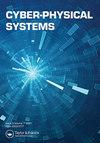Flexible, decentralised access control for smart buildings with smart contracts
Q2 Engineering
引用次数: 6
Abstract
ABSTRACT Large commercial buildings are complex cyber-physical systems containing expensive and critical equipment that ensure the safety and comfort of their numerous occupants. Yet occupant and visitor access to spaces and equipment within these buildings are still managed through unsystematic, inefficient, and human-intensive processes. As a standard practice, long-term building occupants are given access privileges to rooms and equipment based on their organisational roles, while visitors have to be escorted by their hosts. This approach is conservative and inflexible. In this paper, we describe a methodology that can flexibly and securely manage building access privileges for long-term occupants and short-term visitors alike, taking into account the risk associated with accessing each space within the building. Our methodology relies on blockchain smart contracts to describe, grant, audit, and revoke fine-grained permissions for building occupants and visitors, in a decentralised fashion. The smart contracts are specified through a process that leverages the information compiled from Brick and BOT models of the building. We illustrate the proposed method through a typical application scenario in the context of a real office building and argue that it can greatly reduce the administration overhead, while, at the same time, providing fine-grained, auditable access control. CCS Concepts: Security and privacy; Security services; Computer systems organisation; Embedded and cyber-physical systems; Sensors and actuators具有智能合约的智能建筑灵活、分散的访问控制
大型商业建筑是复杂的网络物理系统,包含昂贵的关键设备,以确保其众多居住者的安全和舒适。然而,居住者和游客对这些建筑内空间和设备的访问仍然通过非系统、低效和人力密集型的流程进行管理。作为一种标准做法,长期的建筑居住者可以根据他们的组织角色获得访问房间和设备的特权,而访客必须由他们的主人陪同。这种方法既保守又不灵活。在本文中,我们描述了一种方法,可以灵活安全地管理长期居住者和短期访客的建筑物访问权限,同时考虑到访问建筑物内每个空间的相关风险。我们的方法依赖于区块链智能合约,以去中心化的方式描述、授予、审计和撤销建筑物居住者和访客的细粒度权限。智能合约是通过一个流程指定的,该流程利用了从建筑物的Brick和BOT模型中编译的信息。我们通过真实办公楼上下文中的典型应用程序场景来说明所建议的方法,并说明它可以大大减少管理开销,同时提供细粒度、可审计的访问控制。CCS概念:安全和隐私;安全服务;计算机系统组织;嵌入式和网络物理系统;传感器和执行器
本文章由计算机程序翻译,如有差异,请以英文原文为准。
求助全文
约1分钟内获得全文
求助全文

 求助内容:
求助内容: 应助结果提醒方式:
应助结果提醒方式:


